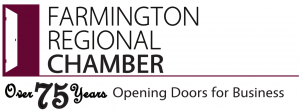15+ Questions to Identify Your Ideal Client
If you are in a client services business (especially one where your clients might return over and over), one of the best things you can do to set yourself up for success is to understand who you want to work with and who aligns with your skills and talent.
If you’re just starting off, or you’ve fallen on hard times, it’s tempting to work with anyone and everyone. But you’ll end up sabotaging yourself in the long run when you choose to work with the “wrong” clients.
After all, there are limited hours in the workday. If you’re plugging just anyone into those spots, there may not be room for the clients that you find the most desirable.
Why Do I Need an Ideal Client?
There are two reasons you should get very clear on who your ideal client is—knowing who they are makes them easier to target from a marketing perspective and you’ll be more satisfied with your business in the long run.
But how do you know who your ideal client is? Isn’t your ideal client anyone who can pay?
Hardly,
Yes, you want someone who can pay but that shouldn’t be your only criteria. It’s important to understand how to identify the people you work best with.
Part of that is defined by the nature of your business or industry. But part of it is also how you want to shape your business.
First, ask yourself the following questions to understand your ideal customer. They may not all apply to your type of business, but they are a good start. Then use your answers to adjust your marketing and design a customer questionnaire to ensure you’re working with people who are a good fit for the kind of business you want to have.
15+ Questions to Ask Yourself to Identify Your Ideal Clients
While it’s tempting to work with “just anyone,” you will be more efficient, happier, less prone to burnout, and more passionate about your business if you are selective with your clients.
Ask yourself:
- What kind of industries or products align with my interests/values? Conversely, what do I not support or have interest in?
- What kinds of projects take my professional growth in the direction I’m most interested in?
- What kind of communication mediums do I enjoy? (If you have a specific client possibility in mind, pay attention to their communication frequency.) Does their style align with mine?
- What level of creative freedom do I prefer? Do I want to co-create or create alone?
- How do I feel about being micromanaged? Will I market myself as an expert or an assistant?
- How flexible am I with what I charge? Am I open to customizable projects or just specific services as laid out in my offerings?
- Do I want to be on retainer with a few clients who control my schedule or have many clients and the freedom in my own scheduling?
- Do I prefer working independently or collaboratively? Do I thrive when leading a project solo, or do I enjoy the energy and shared responsibility of a team?
- What level of responsibility do I enjoy? Do I want to check-in and get sign-offs or only on final deliverables?
- What types of tasks energize me? Do I enjoy the creative aspects of brainstorming and ideation, the detail-oriented work of implementation, or the analytical challenge of problem-solving?
- What types of projects align with my skills and interests? Do I want to do, teach, or consult?
- Do I excel in projects that require strong communication, technical expertise, or creative vision?
- What is my preferred pace of work? Short quick projects/deliverables or longer ongoing projects? Do I thrive under pressure and tight deadlines, or do I prefer a more steady and predictable workload?
- What environment do I like to work in? On-site, at home, or the freedom to do either?
- Is there a demographic I love? For instance, maybe you like to work with new business owners in their 30s because you understand their motivations and you feel invested in the outcomes.
If you take the time to understand your ideal client, you will be much more satisfied in the long run. There are many people in the world you can help but when you find that ideal demographic, your work will be even more rewarding, and your clients will feel it too.

